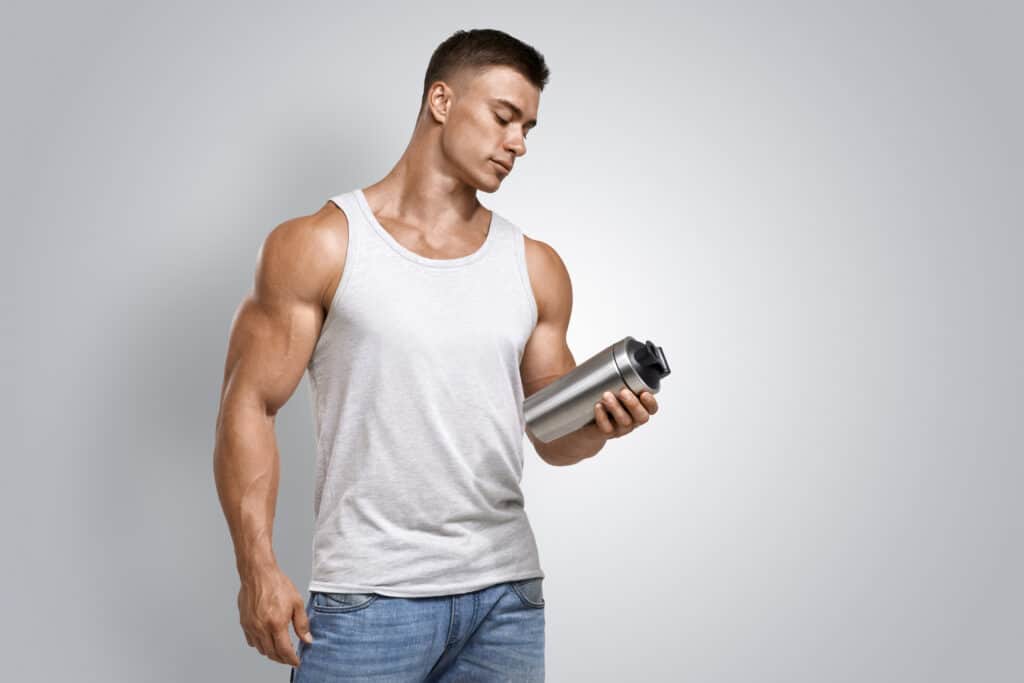Supplements. There’s so much confusion regarding supplements in the fitness industry. If you’re new to this, it can be very overwhelming trying to navigate your way through the amount of information out there. To help ease the confusion, here is a clear and straightforward beginners guide to supplements.
Your Easy-to-Follow Guide to Supplements
Protein Powder
The most popular supplement in the health and fitness industry. Protein is a macronutrient that is necessary for your body to build and repair muscles. With much emphasis on building strength nowadays, protein has become all the rage. While you’re able to get enough protein from your diet, sometimes, you need a little extra boost. This is where protein powder comes in.
Protein powder is a convenient way to fit in more protein without much hassle. All you have to do is add water or milk to the powder and make a shake. You can even add it to your other meals such as to your pancake mix.
There are different types of protein powder that you can take: whey isolate, whey concentrate, casein, soy, pea, brown rice, just to name a few. So whether you are lactose intolerant, vegetarian, vegan, there is an option for you. They’ll also come in various flavors so you can mix things up.
However, while protein powder supplement is a great way of reaching your daily protein requirements, you should get most of your protein from food.
Creatine
Another popular supplement is creatine. Creatine is found in muscle cells and it helps produce energy faster. So when you workout, you’ll have more energy to lift heavier and train harder.
Creatine is a powdery substance that is mixed with liquid. Like protein powder, it comes in many flavors.
It’s best taken before you hit the gym so that the energy you have can be used during training. It’s also important to note that you will gain water weight when you first take this supplement. However, don’t just rely on creatine to build muscle. You still have to follow a good diet and put in the work while training.
BCAAs
BCAAs or Branched-Chain Amino Acids is a must-mention on our guide to supplements because they are becoming increasingly popular with athletes and gym goers. The amino acids in question are leucine, isoleucine and valine. You want to maintain and build muscle, not lose it, however, it can be hard to do especially if you are in a calorie deficit. Those who take BCCAs do so to prevent or minimize muscle catabolism, that is, the breaking down of muscle. This way, you can keep as much skeletal muscle as possible.
L-Glutamine
L-Glutamine is an amino acid that your body needs to preserve muscle tissue and boost your immune system. Unfortunately, most people don’t get the amount of L-Glutamine that they need from food alone, so supplementing it is a great way to reach your daily requirements.
It’s beneficial when you train, especially when you do endurance and strength training. When you do so, you place your body under demand, meaning that it needs more L-Glutamine than normal. It’ll also assist in muscle repair so you can recover faster.
Pre-Workout
If you ever need an extra boost of energy before your training session, pre-workout is an option. Pre-workout works to enhance performance through increased energy and focus. It can also delay fatigue so you can workout harder for longer.
Pre-workout can be made up of various ingredients such as caffeine, creatine, and electrolytes.
Don’t be tempted to take a higher dosage even if you are going to train longer. It’s best to follow the recommended instructions. Taking too much pre-workout can cause you to get the jitters or over-stimulation.
Caffeine
Are you surprised that caffeine is on our beginners guide to supplements? Yes, coffee isn’t just good for waking you up for a day of work. It’s also been proven to be an effective workout supplement, taken pre-workout. It can come in various forms such as a pill or as a drink. Taking caffeine in pill form will take longer to kick in than if you drink it as a liquid beverage.
It is a stimulant, meaning that it can help you be alert and minimize tiredness. It’ll increase your performance in the gym, because of all the extra energy.
However, bear in mind that if you greatly rely on caffeine, you may suffer from withdrawals when you stop taking it such as headaches. Drinking too much can also disrupt your sleep. If you are consuming caffeine as a supplement, then make sure you don’t drink it 6-8 hours before your bedtime. Otherwise, you might find yourself in a vicious cycle.
It’s also a diuretic. So make sure that you stay hydrated and drink plenty of water.
Workout with Jefit
Jefit is a workout log app that helps you meet your fitness goals. By providing an extensive exercise library, you can pick and choose your workouts according to your goals. You can also join our members-only Facebook group where you can connect and interact with your fellow Jefit members. Share your successes, stories, advice, and tips so you learn and grow together. Stay Strong!
- 5 Bodyweight Exercises When You Can’t Get to the Gym - February 7, 2025
- Exercise Training Tips for Beginners - February 3, 2025
- 5 Tips on Getting Back to the Gym After a Long Break—And What to Expect - January 1, 2025
